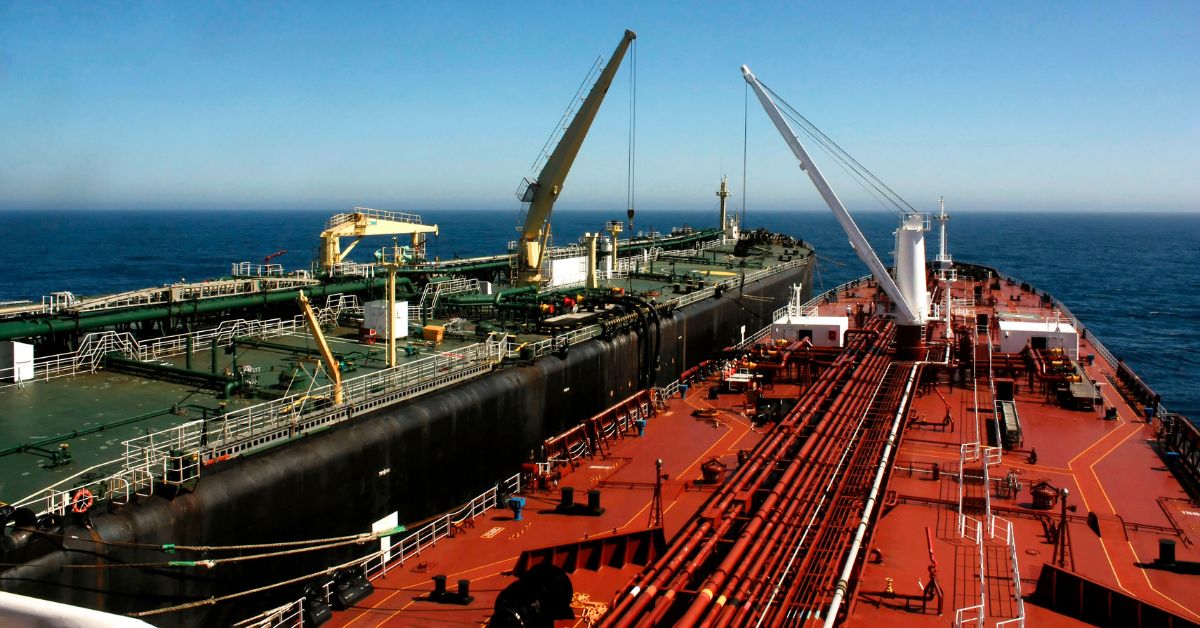
Pakistan Navy Seizes Nearly $1 Billion Worth Of Drugs In The Arabian Sea
October 23, 2025
Three Men Jailed After Luxury Cruiser With 300kg Of Cocaine Sinks Off WA Coast
October 23, 2025

The Chemical Distribution Institute (CDI), International Chamber of Shipping (ICS), Oil Companies International Marine Forum (OCIMF) and the Society of International Gas Tanker and Terminal Operators (SIGTTO) have released the second edition of ‘Ship to Ship Transfer Guide for Petroleum, Chemicals and Liquefied Gases’.
Originally published by OCIMF in 1975, the STS Transfer Guide was consolidated in 2013 through the combined expertise of CDI, ICS, OCIMF and SIGTTO. Recognised globally by the tanker industry and IMO Member States as the definitive reference for safe and effective STS operations, this new second joint edition, released in the 50th anniversary year of the original, reflects current best practices, regulatory developments and technical innovations.
The guide provides comprehensive guidance on planning and executing STS transfers of petroleum, chemical and liquefied gas cargoes. Applicable to all vessels and referenced within Annex 1 of the MARPOL Convention, it serves as a key resource for vessel Masters, Marine Superintendents, STS service providers and regulatory authorities. This edition features a foreword by Secretary-General of the International Maritime Organization (IMO), Arsenio Domínguez, recognising the guide’s vital role in supporting the implementation of MARPOL and reinforcing the shared responsibility for safety through consideration of human factors. The importance of continued industry collaboration to maintain and improve safety standards, reduce environmental impact, and achieve incident-free STS operations is emphasised.
Capt. Howard Snaith General Manager of CDI said: “The depth of knowledge and expertise brought by the members of the Working Groups involved in the development of this revised edition is truly exceptional. Every aspect of ship-to-ship transfers was rigorously examined, with each chapter undergoing detailed analysis and discussion. This publication stands as a testament to the outstanding work and seamless collaboration of a dedicated team of international professionals—delivering guidance that will significantly enhance safety across the industry.”
John Stawpert, Principal Director – Marine, of the International Chamber of Shipping, added: “With the frequency of ship-to-ship transfers of chemicals and liquefied gases on the rise, this new edition is crucial to ensuring that the maritime industry maintains its excellent safety record and reduces its environmental impact during these complex operations.”
Darron L. Biddle of OCIMF, said: “OCIMF would like to thank the IMO Secretary-General, HE Arsenio Domínguez, for his support and recognition of the STS Transfer Guide as the definitive best practice guidance for safe STS transfer operations. Additionally, OCIMF is honoured to have led the revision of the STS Transfer Guide and thanks the co-authors, the Working Group and our industry partners for their contributions in delivering this essential guidance to the maritime industry.”
Hans Weverbergh, General Manager of SIGTTO, added: “Ship-to-ship (STS) operations within the liquefied gas sector have profoundly increased operational flexibility, enabling safe cargo transfers at sea and in port, and allowing operators to respond swiftly to changing market demands. The second edition of the STS Transfer Guide not only builds on decades of technical experience, but also places new emphasis on the human element—recognising that safety and success depend on the competence, decision-making, and collaboration of all personnel involved. By integrating best practices for both technology and people, this guide sets the benchmark for safe, efficient, and flexible STS operations in the gas industry.”
Press Release
Source: Maritime Shipping News


